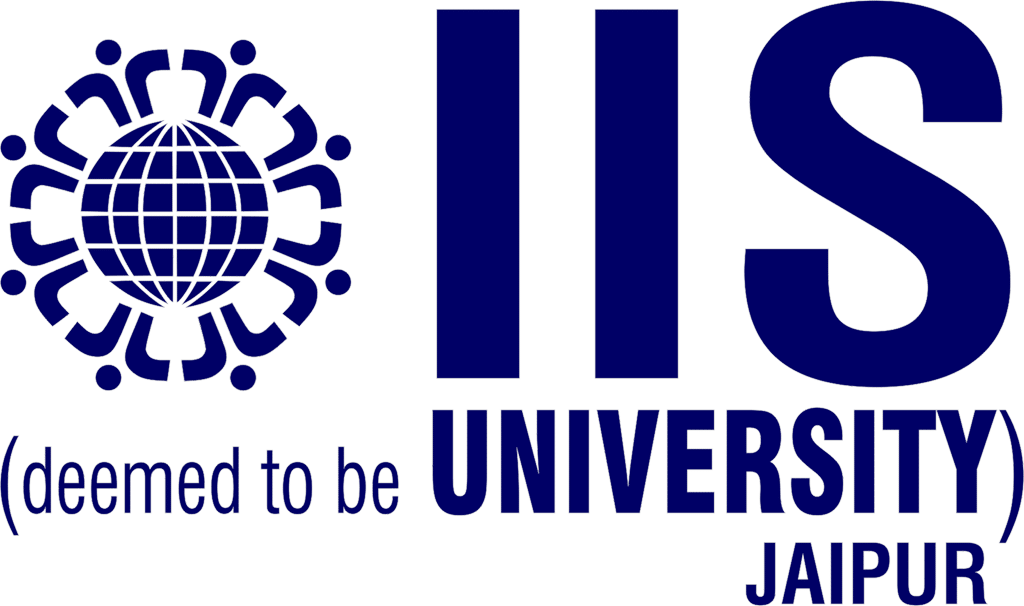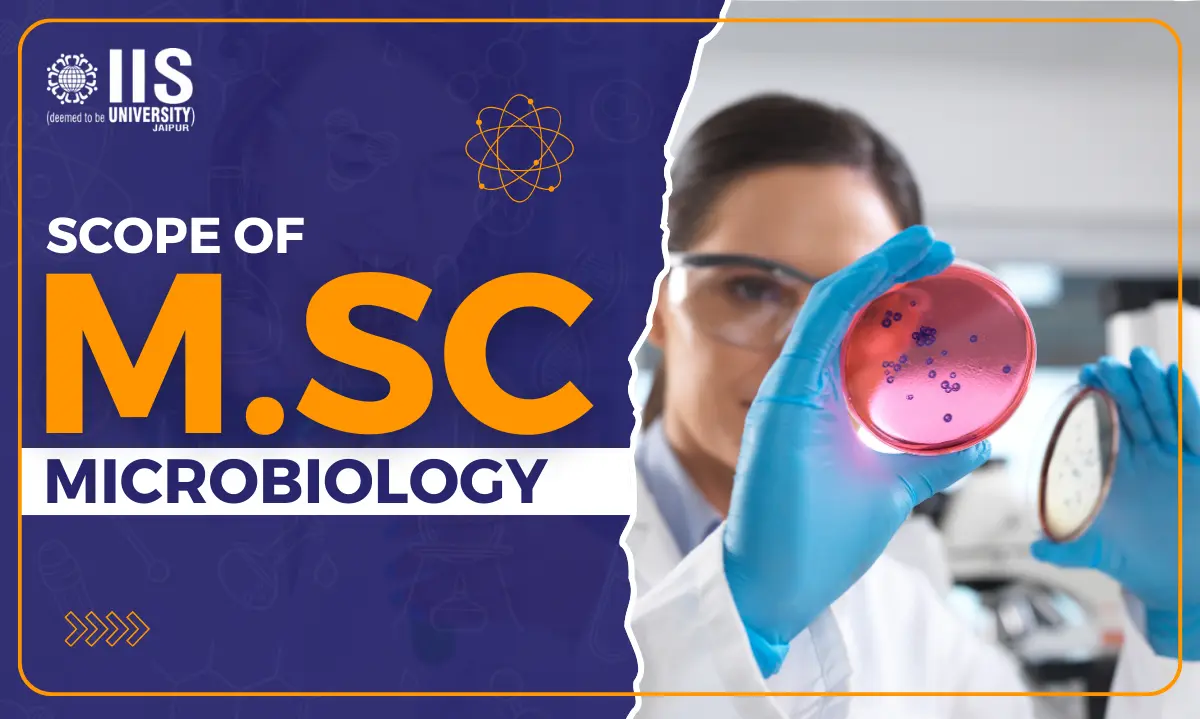Table of Contents
ToggleThe field of microbiology is an example of the promise of biological sciences to discovery. It shows the invisible realm of microbes that impact Earth’s life.
Research in microbiology goes beyond just seeing microbes. In its most basic form, it explores the nature of life itself. We will examine the broad MSc Microbiology scope in India in 2025 here.
We will investigate the various career routes to comprehend the course material and future employment opportunities.
To succeed in today’s ever-changing scientific world, let’s see how this graduate program trains students.
All About MSc Microbiology Scope
Take a closer look at the following table for a breakdown of the program’s essential features before we go into the MSc in Microbiology scope:
Don't Know Which Career Option Is Best For YOU?
Get in Contact With our Expert Counsellors and Clear all Your Doubts.

| Aspect | Details |
| Course Level | Postgraduate |
| Duration | 2 years |
| Types | Regular, Part-time, Distance Learning |
| Subjects | Microbial Genetics, Immunology, Virology, Molecular Biology, Biotechnology, Bioinformatics |
| Eligibility | Bachelor’s degree in Microbiology or related field |
| Course Fee | INR 20,000 – INR 1 LPA |
| Avg Salary in India | INR 3.50 – INR 7 LPA |
| Job Profiles | Research Scientist, Medical Microbiologist, Quality Control/Assurance Specialist, Science Writer, Teaching and Academics |
About MSc Microbiology Scope
The study of different microbes is what the MSc in Microbiology is all about. The MSc Microbiology scope is extensive. Individuals with this degree can pursue several career paths.
These include research, medical microbiology, quality control, and related domains.
Both scientific advancement and society can significantly benefit from the contributions made by these individuals.
Course Level of MSc in Microbiology
An MSc degree in microbiology is a specialized postgraduate degree.
A Bachelor’s degree in Microbiology, Biotechnology, Biology, or a related field is usually necessary for admission to the Master of Science program in Microbiology.
Graduates of Master of Science in Microbiology programs can pursue doctorate degrees, such as a PhD in Microbiology, to concentrate their knowledge further.
Clinical microbiology, industrial microbiology, and microbial biotechnology are just a few examples of the subfields students may elect to study for professional certification.
Read Also: M.Sc Biotechnology Scope In 2024
Duration in MSc in Microbiology
In most cases, a Master of Science in Microbiology degree will take two full years to complete. There are four distinct semesters.
During this time, they focus primarily on theoretical ideas. Through their participation in research and laboratory activities, they also obtain hands-on experience.
Furthermore, many colleges provide a wide range of course types to meet the demands of their students.
Classes are available both on-campus and online, with the former catering to working professionals and the latter to those who want a more flexible schedule.
You might get more time to finish your back papers at some schools. Students can complete their academic obligations within the given period with this help.
Types of MSc in Microbiology
Various MSc Microbiology course styles are available to meet students’ demands. Regular full-time programs offer immersive classroom experiences and practical laboratory training.
Working professionals can find part-time solutions that work for them. They can go back to school while still keeping up with their jobs.
Students who are physically unable to attend a traditional classroom setting can take courses online. One can access lectures and study materials online through these.
With various options, prospective microbiologists may pick a course format that works for them.
Subjects of MSc in Microbiology
Students enrolled in the Master of Science in Microbiology program will get an in-depth familiarity with microbes and their many practical uses.
Biotechnology, bioinformatics, immunology, virology, molecular biology, and microbial genetics are some of the complex topics addressed in this curriculum. Things covered encompass:
- Microbial Genetics
- Immunology
- Virology
- Molecular Biology
- Biotechnology
- Bioinformatics
Eligibility Criteria for MSc in Microbiology
There are specific requirements that prospective students in India must fulfill to get admission to Master of Science degree programs in microbiology.
These standards ensure the students are qualified for the course by testing their knowledge and skills.
The usual prerequisites for a Master of Science degree in microbiology are as follows:
- Equivalent to a Bachelor of Science degree in Microbiology from an accredited institution
- Undergraduate minimum passing grade (often 50% and above)
- You might have to pass an interview or test to get admission to some schools.
- Ability to communicate well in English (as measured by generalized examinations or university-specific assessments)
Course Fee of MSc in Microbiology
A Master of Science in Microbiology degree might cost more or less than a Bachelor’s degree in other areas.
An annual tuition charge of 20,000 to 1,000,000 INR is a typical range for conventional full-time programs.
There may be no difference in the cost between part-time and distance learning choices, but the latter may provide greater leeway regarding payment plans.
However, specific tuition structures and other expenses, including test fees or study materials, must be confirmed with particular universities.
MSc Microbiology: Avg Salary in India
Earnings potential for MSc Microbiology graduates is high across industries.
A typical starting wage in India falls between 3,50,000 and 7,00,000 Indian rupees (INR) per annum.
However, factors like experience, talents, geographical region, and company might cause real compensation to differ.
MSc Microbiology Scope and Job Profiles
Graduates with a broad MSc in Microbiology scope can choose from various career openings in many fields.
Let’s take a closer look at a few of the most important job descriptions for MSc Microbiology holders:
Private Jobs after MSc Microbiology
- Medical Microbiologist:
Infectious illness microbes are the primary research interest of medical microbiologists.
They toil at clinical labs, public health facilities, and hospitals to identify and cure infectious diseases.
Infection prevention, vaccine research and development, and monitoring antibiotic resistance are three areas where medical microbiologists are vital.
- Quality Control/Assurance Specialist:
The job of quality control and assurance experts is to ensure that everything is up to par in terms of both regulatory requirements and product specifications.
Biotechnology, the food and beverage industry, and pharmaceuticals are among their places of employment.
To guarantee the safety and effectiveness of the product, they execute quality tests, oversee the manufacturing process, and establish quality management systems.
- Science Writer:
Articles, reports, and blogs are just a few of the many outlets science writers use to explain abstract scientific ideas to the general public.
Careers as science journalists are open to MSc Microbiology graduates who excel in communicating.
They can potentially make valuable contributions to scientific organizations’ content production efforts, teaching resources, and science journalism.
- Biomedical Scientist:
To identify illnesses and track the efficacy of treatments, biomedical professionals analyze patient samples in clinical laboratories.
Microbiological cultures, biochemical testing, and molecular diagnostics are just a few laboratory services they offer. Both medical research and patient care benefit from their use.
- Microbiologist:
Microbes, including bacteria, viruses, fungi, and parasites, are the focus of microbiologists’ research.
They gain knowledge of their biology, ecology, and how these things relate to their surroundings.
Academic research, environmental monitoring, agriculture, and industrial microbiology are among the numerous settings in which they may work.
- Pharmacologist:
Pharmacologists study how various substances affect living things, cells, and microbes. They play a crucial role in the creation of novel therapeutics.
They do pharmacokinetic analysis, drug screening tests, and preclinical research. They help determine drug safety, effectiveness, and action mechanisms.
Government Jobs after MSc Microbiology :
- Research & Laboratory Jobs
These are core technical/scientific roles in government labs, such as:
- Microbiologist / Scientist B / Technical Officer
- Research Assistant / Project Assistant / JRF / SRF
- Lab Technician / Analyst
- Food Safety & Drug Regulation
This department ensures that the food & drug products meet all safety norms (FSSAI standards) created by th eGovernment of India.
- Food Safety Officer (FSO) in state food safety departments (through state PSC exams)
- Drug Inspector under state / central drug control organizations
- Teaching Jobs
- Assistant Professor / Lecturer in government universities & colleges
- Promoted to Associate Professor & Professor with experience.
Read Also: IIS: Your Path to Excellence in Physiotherapy – Among India’s Top Colleges
Best University for MSc in Microbiology
In India, the MSc Microbiology scope in 2025 is quite broad and promising.
Various areas provide a plethora of job prospects. Graduates can start fulfilling professions with a solid background in microbiology.
With the ever-increasing need for qualified experts in this sector, pursuing a Master of Science degree in microbiology is a wise decision for everyone’s future.
Regarding Master of Science in Microbiology programs, the Indian Institute of Science (IIS) is head and shoulders above the competition.
It has a stellar reputation for innovative support, first-rate professors, and state-of-the-art research facilities.
Aspiring female microbiologists will find an unrivaled learning environment at IIS (Best Girls University in India).
In addition, IIS stands out in India’s educational scene for its commitment to advancing women in STEM professions.
FAQs: MSc Microbiology Scope
Q1. Which job is best after an MSc in Microbiology?
Ans: A person’s hobbies and professional aspirations determine the ideal employment after completing an MSc in microbiology. Some common choices are quality control specialists, medical microbiologists, and research scientists.
Q2. Is MSc microbiology a good course?
Ans: An MSc in microbiology is a solid choice for those interested in microbes and how one might use them in medicine, biotechnology, and other disciplines.
Q3. Can I join ISRO after my MSc in Microbiology?
Ans: Despite ISRO’s primary emphasis on space research and technology, astrobiology and environmental monitoring are two adjacent fields where microbiology graduates might find work.
Q4. Can I get a job after my MSc in Microbiology?
Ans: Indeed, a Master of Science in Microbiology may pave the way to various rewarding careers in academia, healthcare, pharmaceuticals, and research.
Q5. Can I do MD after my MSc in Microbiology?
Ans: One can certainly continue their education in the medical field after earning a Master of Science degree in microbiology.
Some of these options include medical schools with a microbiology concentration or a closely related discipline.
Q6. Can I join DRDO after my MSc in Microbiology?
Ans: Opportunities for careers in microbiology and other scientific fields are available through the Defense Research and Development Organization (DRDO).
Military and security-related R&D jobs may be available to those with a Master of Science degree in microbiology.

“The IIS University Team is a group of expert teachers and staff who are passionate about helping students learn and grow. They come from different fields but all aim to help guide the university’s students. They write these blogs to share their thoughts and ideas about learning and the importance of education. Their goal is to help students prepare for the future in a simple and understandable way.”
